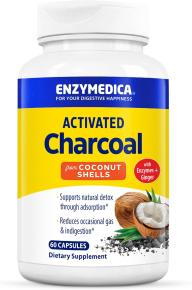It doesn’t discriminate against age and has no qualms about popping up in the most embarrassing of places (tip of the nose, middle of the chin, between the eyes). Yes, it’s acne vulgaris, commonly known as plain old acne. If you’re one of the more than 85 percent of the population that has experienced it, there’s nothing plain about it!
Acne is a skin disorder that occurs when pores get clogged. This eventually causes small infections known as pimples, whiteheads, blackheads, or cysts. Acne usually begins during adolescence but many adults experience it too—especially women during their menstrual cycle. Heredity also may play a part.
Spots Be Gone
Fortunately, there are natural ingredients that can help control acne outbreaks. Tea tree oil has been shown to be as effective as a benzoyl peroxide solution of the same concentration, but with fewer side effects. Try diluting one drop in your facial cream or oil, or apply it straight to a pimple with a cotton swab.
Speaking of benzoyl peroxide—while it may be the most popular over-the-counter product for acne, some studies indicate that it generates cell-damaging free radicals. The European Union has even banned it.
Instead, use the antibacterial tea tree oil or natural salicylic acid from willow bark, which can help reduce inflammation, or a combination of the two.
Calendula can help if skin is oily and plagued with blackheads. Some holistic skin care professionals recommend clay rich in skin-strengthening minerals such as silicon, calcium, iron, and magnesium. Clay also draws out excess oil, dirt, and infection, helping clear infected follicles.
Herbal ingredients like rosewood, lavender, and chamomile can help reduce inflammation and redness and may prevent future breakouts.
And while it may seem strange to apply oil to blemished skin, jojoba and sweet almond oils can help maintain a natural moisture balance.
Treating from the Inside Out
What you eat can help your skin’s appearance. An anti-inflammatory diet full of antioxidants and essential fatty acids (flaxseeds, salmon, walnuts) can help control acne.
Avoid foods that spike insulin (sugar, white flours, pastas). Eat items that are low in fat and high in fiber (whole grains, fruits, vegetables). Some people find that eliminating dairy products helps control their acne.
Supplementing with probiotics is another dietary option. Lactobacillus strains, such as acidophilus and bulgaricus, have been found to improve study a majority of participants’ acne.
Taking vitamin A can help speed skin healing, especially when it comes to acne. B-complex vitamins promote healthy circulation and may help prevent acne. Zinc is another beneficial nutrient, especially when used with vitamins A and B.
